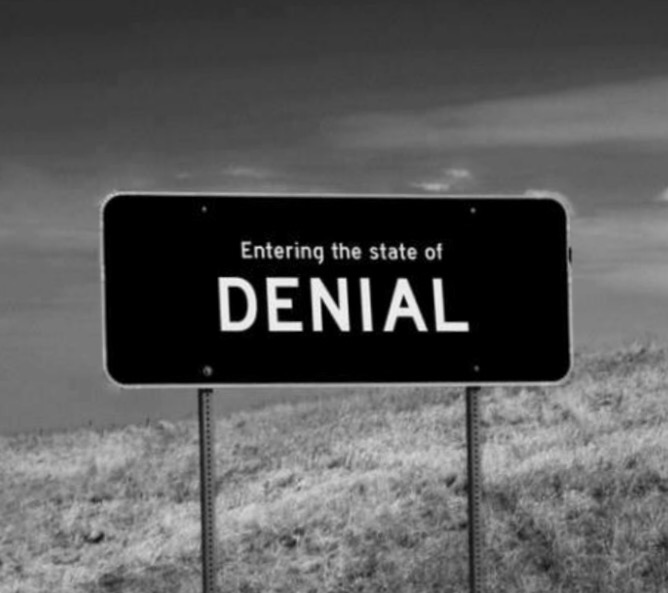Denial
As we discussed in other pages, some argue that alcoholism, and any other addiction, is a disease. They suggest that there are certain characteristics that are integral to that disease, eg craving, loss of control and of course denial.
Denial is the apparent inability to recognise or admit having a problem with  alcohol. Freud suggested that it is a defence mechanism that allows the alcoholic, or other addict, to continue with their behaviour despite the negative consequences and the fact that to most other people it is obviously a problem. It is also this denial that kicks in when you ask about drinking. You have been drinking – No I haven’t. You are drunk – no I’m not.
alcohol. Freud suggested that it is a defence mechanism that allows the alcoholic, or other addict, to continue with their behaviour despite the negative consequences and the fact that to most other people it is obviously a problem. It is also this denial that kicks in when you ask about drinking. You have been drinking – No I haven’t. You are drunk – no I’m not.
You, or someone else, may have challenged your drinker, about whether they had a problem. You may have used the term alcoholic or you may have suggested (perhaps very strongly) that they should see someone about drinking. At that point you may (almost certainly) met the denial process – I’m not an alcoholic, I don’t need to see anyone!!! Why does the drinker not see what you see, the problems that it causes, the changes in personality and behaviour?
There are two main reasons why this happens. The first of these is due to what psychologists call reactance. Basically what this means is that people (not just addicts) have a natural tendency to defend themselves if they are accused and feel threatened in any way. For example if someone made a remark about your appearance eg saying you are fat you would probably feel yourself bristle with indignation and would deny it, even if you had gained a few pounds. Or if someone accused you of being rude, again you may feel insulted and misunderstood. This is what reactance means, it is the fact that we defend ourselves from perceived threat, often even when there is some truth and justification in the threat.
The same is true of ‘alcoholic denial’. When heavy drinkers are accused of being alcoholics there is a natural reactance that occurs. It is not that they do not or cannot recognise a problem, it is that the approach is too direct. This is where SHARE comes in.
SHARE does not concentrate on the actual drinking but on the consequences of the drinking behaviour to you. It is a powerful tool that avoids the normal reactance found when talking about drinking and helps to promote discussion about the issue and ultimately reduce its impact.


